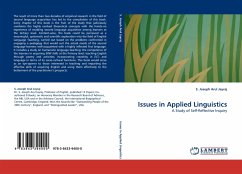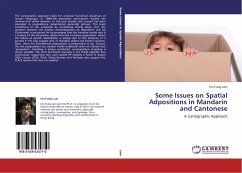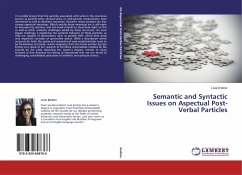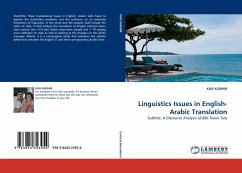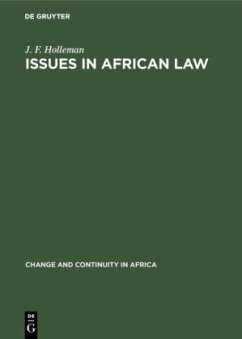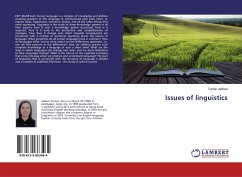
Issues of linguistics
Versandkostenfrei!
Versandfertig in 6-10 Tagen
24,99 €
inkl. MwSt.

PAYBACK Punkte
12 °P sammeln!
EDIT BLURB Each human language is a complex of knowledge and abilities enabling speakers of the language to communicate with each other, to express ideas, hypotheses, emotions, desires, and all the other things that need expressing. Linguistics is the study of these knowledge systems in all their aspects: how is such a knowledge system structured, how is it acquired, how is it used in the production and comprehension of messages, how does it change over time? Linguists consequently are concerned with a number of particular questions about the nature of language. What properties do all human la...
EDIT BLURB Each human language is a complex of knowledge and abilities enabling speakers of the language to communicate with each other, to express ideas, hypotheses, emotions, desires, and all the other things that need expressing. Linguistics is the study of these knowledge systems in all their aspects: how is such a knowledge system structured, how is it acquired, how is it used in the production and comprehension of messages, how does it change over time? Linguists consequently are concerned with a number of particular questions about the nature of language. What properties do all human languages have in common? How do languages differ, and to what extent are the differences systematic, i.e. can we find patterns in the differences? How do children acquire such complete knowledge of a language in such a short time? What are the ways in which languages can change over time, and are there limitations to how languages change? What is the nature of the cognitive processes that come into play when we produce and understand language? The part of linguistics that is concerned with the structure of language is divided into a number of subfields: Phonetics - the study of speech sounds



